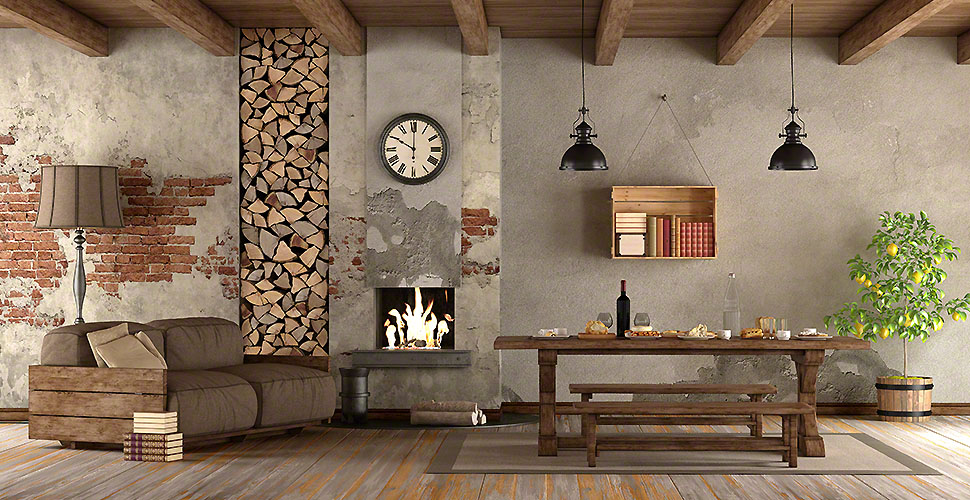There are more than 25,000 chimney fires reported in America which cause millions of dollars of property damage. Therefore, if you want to enjoy the warmth of your fireplace or wood stove, you should also you should carry out a chimney inspection regularly to ensure safety. Below are the causes of chimney fires so you can avoid them.
Not Regularly Cleaning Your Chimney
The easiest way to avoid chimney fires is regular chimney cleaning. When wood burns in the fireplace, it produces the by-products of burning which escape through the chimney. But when it’s passing through the cooler chimney, due to condensation, some of its amount sticks to the walls of the chimney.
It is a black or brown, sticky substance that can be tar-like, hardened, or drippy and is highly flammable.
When a chimney is cleaned and the creosote keeps building up in the chimney, at a certain point, the deposits of creosote are enough to catch fire in the chimney. Therefore, you should inspect and clean your chimney to avoid it. If you scratch the chimney walls or liner and find 1/8 inch of creosote, you should clean the chimney.
Burning Wet Wood
Wet or green wood that has moisture in it doesn’t burn properly. This increases the smoke coming out during the burning process. More smoke increases the rate of creosote build-up in the chimney.
To reduce the speed at which creosote accumulates in your chimney, only use seasoned and dry wood. Look for wood that has been dried for at least 6 months. You can also buy and keep wood in your house to dry. If you’re drying wood yourself, take note of the density of the wood. Dense wood will take longer to cure.
When buying dry wood, use a moisture meter to determine the moisture level. It should be less than 20%. Moreover, look for cracks at the ends of the wood. It is a sign that the wood has dried out.
Using Cardboard And Similar Materials As Wood
Cardboard, gift wrappings, and any other material is not made to safely burn in the fireplace and can cause a chimney fire. The reason is that material outside of wood can burn very hot fire which can trigger the creosote buildup to catch fire.
Furthermore, don’t use any type of wood that is pained or treated because it will release toxic chemicals that can affect the health of people inside the room and the house.
Uninsulated Chimney Liner
The layer between the chimney walls and the flue is called the chimney liner. It is a material that is installed on top of the chimney walls for better protection.
Creosote builds up in chimneys due to condensation. The cool walls of the chimney lead to this process. When a chimney liner is uninsulated, creosote forms faster. However, if you insulate the liner, less condensation will occur because the liner and walls of the chimney won’t be as cool leading to less creosote buildup.
You can different methods of insulating the liner. There are heat-resistant insulation wraps that can be used or you can pour an insulation mix in the area.
Not Installing A Chimney Cap
A chimney without a cap will attract animals and birds and they will make their nest inside it. Moreover, debris and leaves can also accumulate in the chimney. These nests and leaves can quickly catch fire. When a fire erupts, any amount of creosote stuck to the chimney walls will also ignite making the chimney fire hotter and more hazardous.
To prevent leaves and nests of different living things from ending up in your chimney, install a chimney cap.
Leaving Slow-Burning Fire In The Fireplace Overnight
Slow-burning fire produces more smoke. When more smoke goes up through the chimney walls, more creosote is formed. So, don’t let smoldering fire overnight and when you’re using your wood-burning fireplace, burn hot fire because it produces less smoke and vapors leading to less creosote buildup.
Conclusion
Prevent chimney fires by practicing safe fire-burning techniques, using seasoned wood, preventing creosote buildup, insulating the flue liner, and cleaning your chimney when you notice 1/8 inch of creosote on the liner. Hire chimney contractors Upper Marlboro for inspecting, cleaning, and repairing your chimney.



